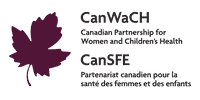Event Details
Consultez cette page en français en sélectionnant votre langue préférée en haut à droite de cette page.
Humanitarian crises disproportionately affect women, girls, and gender-diverse people. From natural disasters to conflict, women and girls have their family and social networks disrupted, are exposed to an increase in gender-based violence (GBV), lose access to critical sexual and reproductive health (SRH) services and have existing gender inequalities further exacerbated post-crisis.
As a result, there is a need to integrate a gender lens into humanitarian response programming and to create opportunities for gender transformative (GT) change. This focus creates opportunities to address the root causes and social norms underpinning gender inequalities. It also considers other gender transformative interventions whose importance are often minimized in humanitarian response because the primary focus of programming is on disaster relief or timelines for program delivery are too short to track transformative change.
Additionally, the gendered impacts of humanitarian crises are not recognized and addressed in the same way in all contexts. In particular, domestic disaster management programs often fail to include a GE/GT lens, as was highlighted during the COVID-19 pandemic.
On September 13 from 1 p.m. to 2:30 p.m. EDT, join CanWaCH to discuss practical tools and best practices to better integrate gender equality / gender transformative programming in humanitarian action, the link between humanitarian-development and nexus programming and how to close the gap that exists between international and domestic responses. In particular, this session will explore how data collection can be used to inform, shape, and support gender transformative humanitarian action.

